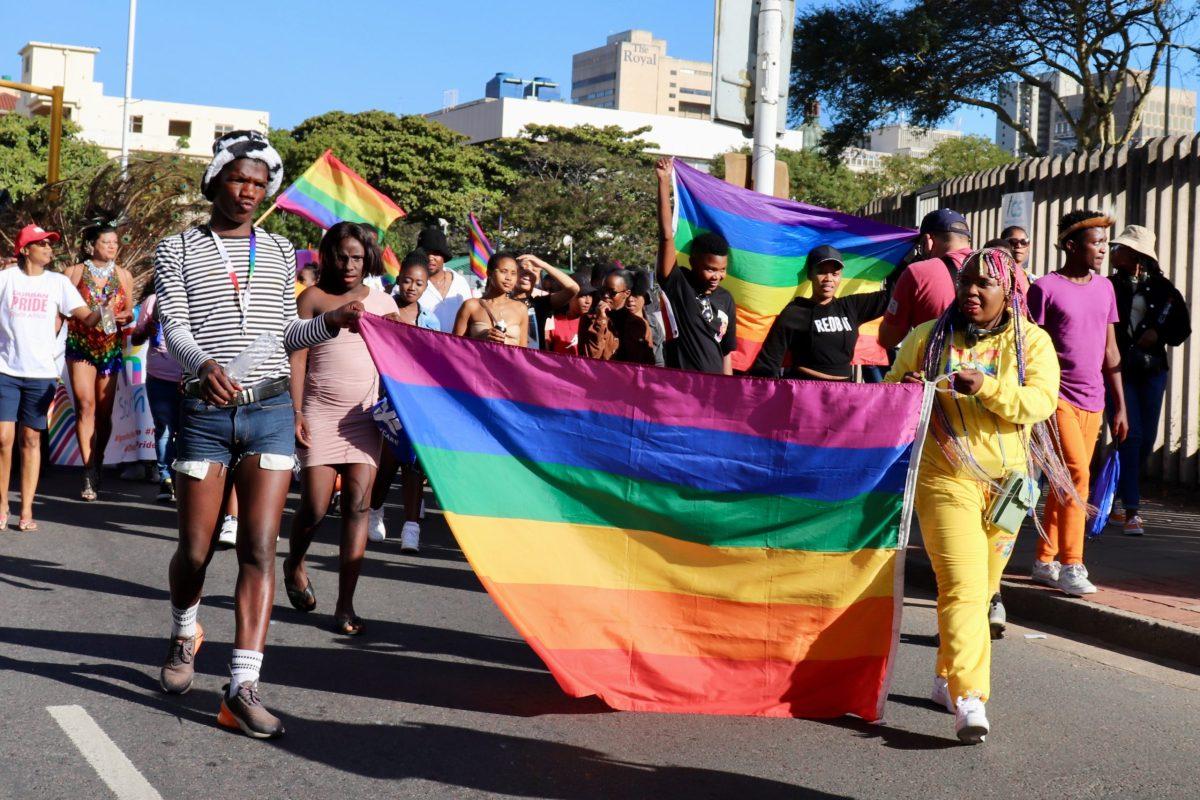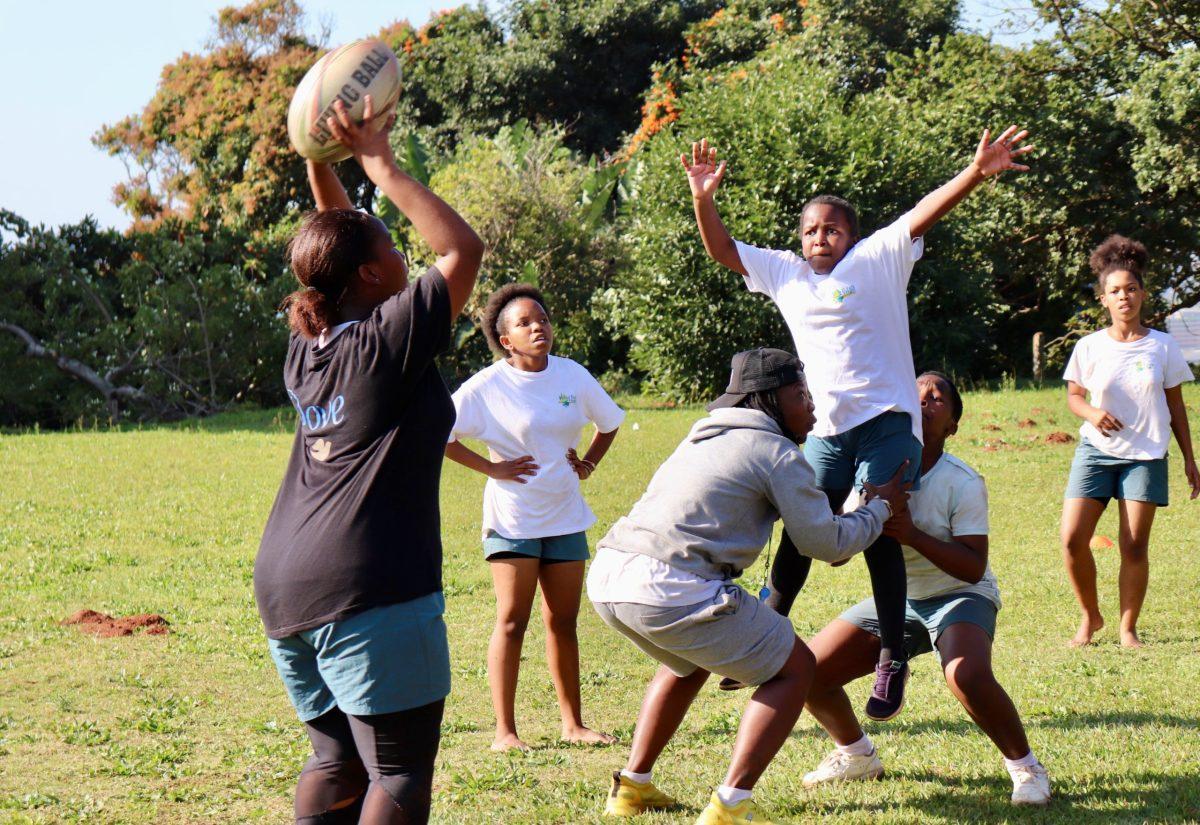Durban, South Africa — After a two-year hiatus due to the covid-19 pandemic, Durban Pride returned to Gugu Dlamini Park in central Durban on June 25.
About 300 people chanted, sang and marched their way through the streets of downtown Durban as part of the event.
Jason Fiddler, Durban Pride organizer and chief safety official, said the lockdown made organizing the Durban Pride parade impossible in 2020 and 2021.
“Last year the third wave, the Delta wave, meant that again, we couldn’t even try and gather,” Fiddler said.

The crowd was noticeably smaller this year. The 9th annual parade in 2019, held at the same location, drew between 5,000 and 8,000 participants, Fiddler said.
“This is the smallest [turnout] we’ve had for many years, but obviously it’s understandable,” Fiddler said.
Specifics about the 2022 event were also announced just days before it took place. A flyer with details about the event was posted in a June 19 Facebook announcement on the Durban Pride page. Fiddler explained the delay as needing to “suit” various city officials.
“We are always the ones who have to adapt to what other people want, which is kind of interesting,” Fiddler said. “The queer community has to adapt to what heterosexual Durban wants.”
South Africa also lifted its indoor mask mandate as well as its limits on public gathering sizes on June 22, three days before Pride.
Nonhlanhla Mkhize, another Durban Pride organizer, said the pandemic was hard on people in the LGBTQIA+ community, but events like Pride make them feel safe again.
“For people in Durban, it is about us being safe, us being able to express ourselves in a space and time where no one feels violated or minimized because of that,” Mkhize said.
“It means my freedom,” Xeketwane said. “It means my voice, it means my expression, everything, everything.”
Xeketwane also said it is important for others to see him as gay.
“Me being here today means I’m here to express myself to the world,” Xeketwane said. “I’m here to bolden my rights as a gay person. I’m here to sign out there in the world and to stop the violence.”
Sexual orientation is protected by the South African constitution, but members of the LGBT community still face significant violence.
According to the National Task Team of the South African Government, 42 reported hate crimes were pending against members of the LGBT community across South Africa in the first half of 2021. Thirty of those were murder cases and 12 were rape cases. Nearly 88% of crimes against LGBT people in South Africa go unreported, however, according to a 2016 survey by OUT, a long-standing LGBT organization based in Pretoria.

At the front of the parade, next to participants who carried a sign that read “Durban Pride South Africa,” walked Nombulelo Khumalo, an intersex and pansexual student pastor in the Methodist Church of South Africa. Khumalo said it is important for them to be present at Durban Pride in order to show that LGBT spaces are not without God.
“God lives in each and every one of us, and the beauty of seeing people coming together, being happy about who they are, embracing, fighting for justice and acceptance in life, is what my mission is about,” Khumalo said.

Also leading the marchers was a drag queen from Cape Town, who was adorned in a plume of peacock feathers. Miss Lola Fine, who was a part of the first Pride celebration in South Africa in October of 1990 and has started Pride events in multiple provinces around the country, said South Africa’s Pride celebrations have come a long way since they began in the early 90s.
“They would throw things at us,” Miss Lola Fine said. “Oh, [it was] just very bad in the beginning. We were put in the back streets, people booed us. It was really bad. Tragic, actually. Sometimes people died.”
During the parade, marshalls like Viwe Xeketwane wore neon vests and directed participants away from traffic. Xeketwane said being able to attend Pride means everything to him.

Luh Thusi, who attended Pride and marched in the parade, said for them, celebrating pride means celebrating the legacy of queer South Africans who have lived without acceptance, especially those bullied and ostracized by their families.
“If we don’t celebrate pride, we will forget what pride actually means,” Thusi said.
Thusi wore a long-sleeve black mesh shirt cropped above the waist, black joggers and a red bandana.
“I do look incredible,” Thusi added with a smile.
Katie Rosta ’22 and Mateo Caplin ’23 contributed to this story.




































